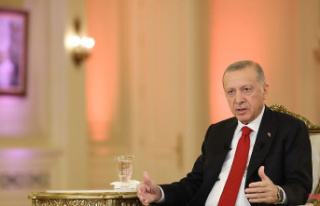The Taliban had already excluded girls from secondary schools. Now they are banning them from attending universities until further notice. Step by step, women are pushed out of life. The Taliban had vowed last year to rule more moderately than in the 1990s.
The Islamist Taliban have once again drastically curtailed women's rights in Afghanistan: effective immediately, women are no longer allowed to attend universities. In a government statement, all private and public universities were instructed to enforce the education ban until further notice. The notice was shared by the Ministry of Higher Education. The declaration was signed by the acting minister, Sheikh Neda Mohammed Nadim. There was no justification. The minister is said to be close to Taliban leader Haibatullah Achundsada.
Since taking power in August 2021, the Islamists have massively restricted women's rights. Girls and women are largely excluded from public life. Secondary schools from the seventh grade upwards have also been closed to girls since the change of government. In the country, women have recently even been banned from visiting public parks and gyms.
Only a few hours before the announcement, the new UN special envoy for Afghanistan, Roza Otunbayeva, lamented a tightening of the Taliban government course in a speech in New York. "We have seen a number of restrictions that are particularly harmful to women," Otunbayeva said. "Their social space is now being restricted, as is their political space."
The human rights organization Human Rights Watch (HRW) called the ban a "shameful decision". The Taliban made it clear every day that they do not respect the basic rights of Afghans, especially women, HRW wrote on Twitter.
There has always been international criticism of the Taliban's policies. Despite internal disagreements, the group is sticking to its course. Even before their military successes last year, which ultimately led to the fall of the Western-backed republic under President Ashraf Ghani, the Islamists had promised a moderate course. However, some experts warned early on about these announcements.
Since taking power in August 2021, the Taliban have restricted women's rights as well as freedom and media rights. Observers also accuse them of targeted revenge and killing uncomfortable critics. The humanitarian situation in the country has deteriorated massively. Millions of people depend on support and food aid. There are also regular terrorist attacks in the country, which the terrorist militia Islamic State (IS) often claims are responsible for.












